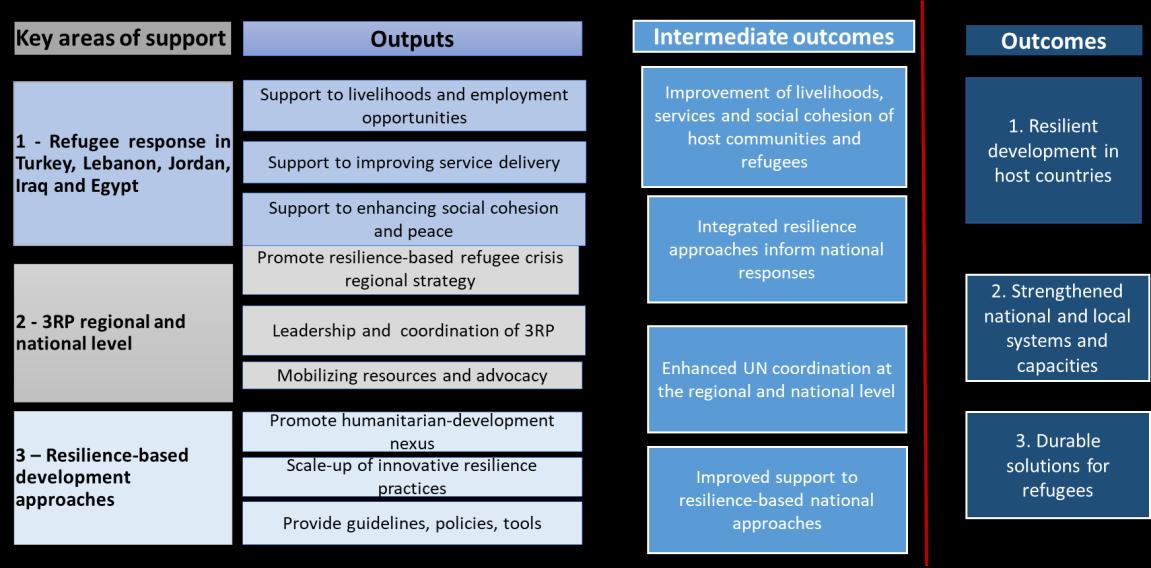CHAPTER 4. FINDINGS This chapter evaluates the UNDP contribution to different areas of the Syrian refugee crisis response, its strategies and concepts and operationalization of the 3RP framework. The analysis of findings is presented under nine sections in four parts. Part A assesses UNDP support to the Syrian refugee crisis response in terms of its contribution to policy, employment generation, strengthening services and local development, and private sector engagement. Part B presents the assessment of cross-cutting themes, viz., support to private sector development and accelerating gender equality and women's empowerment in refugee and host community support. Lastly, part C analyses the UNDP positioning at the global, regional and country levels and promotion of the resilience approach. The analysis considers contextual factors such as the varied policy environment, the protracted nature of the refugee crisis and the intensity of country-level dynamics. The evaluation acknowledges the specificities of the host country contexts, variations in UNDP support and the challenges in promoting a resilience agenda. The analysis also takes into consideration the financial resource constraints for the resilience component of the refugee response. The analysis does not cover the challenges COVID-19 presents for the refugee and host communities although some observations based on interviews are included.
A. SYRIAN REFUGEE CRISIS RESPONSE The following sections analyse the UNDP engagement and contribution to the Syrian refugee crisis response. The areas covered are national policy support and institutional capacity development, contribution to the 3RP, support to employment and livelihoods and strengthening services and local development.
4.1. National policy support and institutional capacity development The discussion in this section includes an assessment of initiatives within and outside the 3RP mechanism with relevance for promoting resilience and sustainability in policy options. Finding 1. Prioritization of policy engagement varied across country programmes and there were several unused opportunities in leveraging UNDP work at the subnational level. UNDP has yet to build on its comparative strengths and organizational expertise for policy engagement. Long-standing work at the municipal level has yet to be used to play a more comprehensive role at the subnational level and enable local and national government linkages. Support for policy analysis and knowledge-sharing informed institutional reform processes and strengthening. In Turkey, concerted efforts have been made by UNDP to provide long-term, bottom-up solutions in the areas of employment and service delivery, which are important for Turkish nationals as well as Syrian refugees. Medium- to long-term engagement in the areas of the competitiveness agenda, industrial productivity and organic agriculture contributed to progressively strengthening capacities and enabling policy and regulatory frameworks. In Jordan, Lebanon and Turkey, long-standing UNDP work with ministries and institutions contributed to policy engagement in the areas of competitiveness, energy, environment and solid waste management, among others. In the refugee-hosting countries, support for strengthening services in municipalities hosting Syrians has improved services, further discussed in Finding 10. The UNDP thrust on longer-term development solutions over temporary fixes to address fundamental development issues was well conceptualized at the national level through programmes such as the Lebanon Host Communities Support Project (LHSP). While UNDP programmes responded to key national and
45



